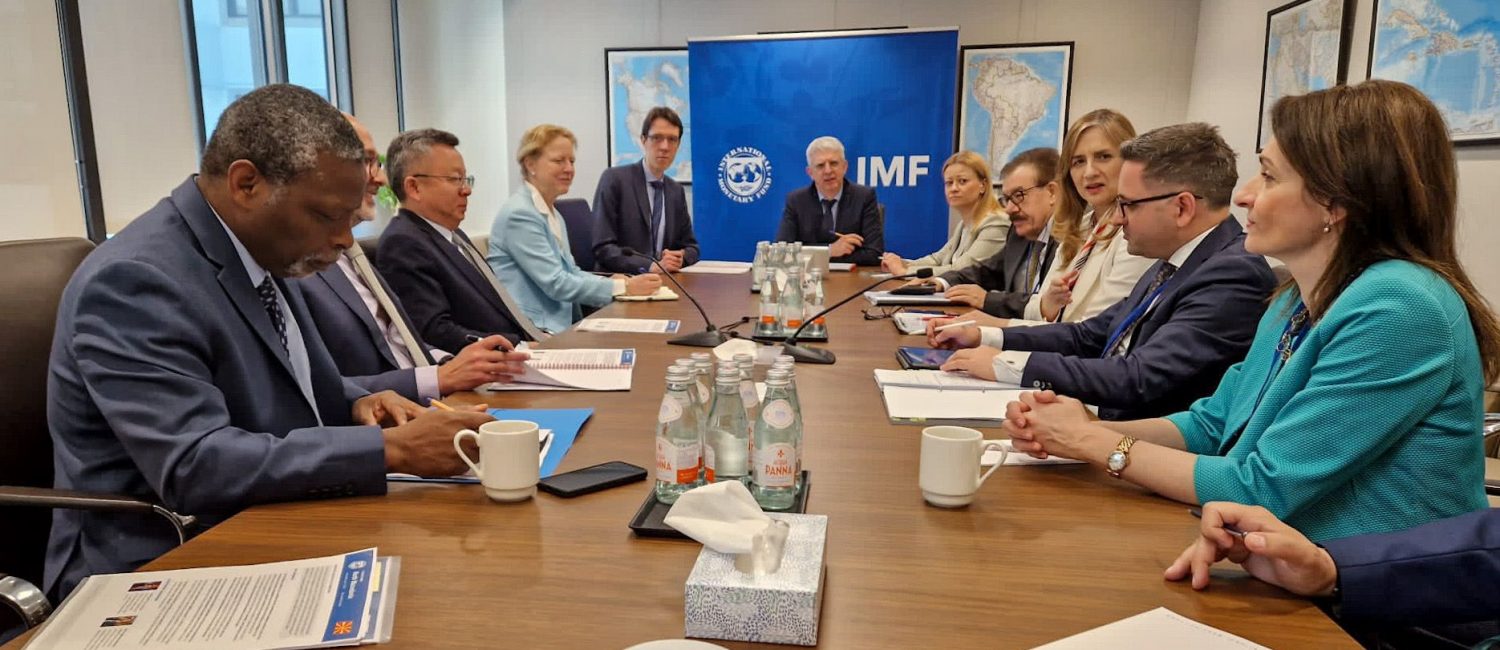13th April, 2023 Washington – Measures and policies conducted in the Republic of North Macedonia provided for preserving macroeconomic stability, reducing the budget deficit, maintaining the public debt sustainability and keeping it within the Maastricht Criteria, with the inflation recording downward trend, and the economy being resilient and kept within the positive zone. This was concluded at the meetings between the Minister of Finance, Fatmir Besimi, the Deputy Managing Director at the IMF, Bo Li and the Director of the European Department at the International Monetary Fund, Alfred Kammer, held within IMF and WB Spring meetings, taking place in Washington.
“Uncertainty and challenges stemming from the crisis are still present in both the world and the Republic of North Macedonia. We are dedicated to responding to these challenges in the short run, while remaining committed to fiscal consolidation in the medium term and accelerating the economic growth. Measures taken, aiming to tackle the price crisis have already generated positive effects by reducing the inflation rate for five months in a row, from 19.8% in October to 14.7% in March. Since the beginning of the year, budget deficit has been lower by approximately 16% compared to the deficit realized in that period in 2022, public debt accounted for 57.1% as of December 2022 inclusive, the general government debt accounted for 44.9% of GDP at the end of February, total budget revenues grew by around 15% at the beginning of the year, the economic activity recorded resilience and growth, export grew by 10.2% in the first two month of 2023, unemployment rate decreased, being at record-low level of 14%”, Minister Besimi said.
He stressed that IMF’s PLL, which was made available last year speak in favor of the sound and sustainable policies, we pursue, which support is aimed at managing the crisis and laying foundations for further long-term growth. Support in times of crises when funds on the market become costly and limited is a signal to investors for our sound policies”, Besimi stressed, thereby adding that the investors’ great interest at the auction of the ninth Eurobond, issued during March 2023, credit rating affirmed by Fitch and Standard and Poor’s, as well as the interest in foreign investments in the country, reaching over EUR 750 million last year, being higher by 60% compared to 2021, also speak in favour of the sound policies we pursue.
Moreover, the expected positive impact from the implementation of capital projects for which EUR 800 million are projected in the 2023 Budget, as well as the investments in the industrial zones, were also underlined at the meeting.
Minister also touched upon the reforms implemented in the field of public finance, the new Organic Budget Law, and the potential support for this reform process, which will provide for putting a new modern budgeting system in place, based upon transparency and accountability and allocation of funds to those recording best performance.
Within IMF and WB Spring Meetings, Minister Besimi will also meet WB Vice President for the Europe and Central Asia Region, Antonella Bassani and WB Executive Director, Koen Dsavidse.
















